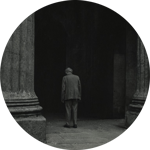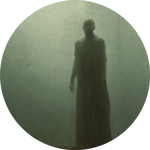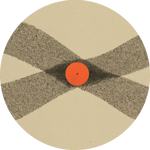The Weight of Wonder
Dream not of things
impossible, but
of things not dreamed.
I’ve heard the argument that our modern world lacks an equivalent to the Gothic cathedral. Gothic cathedrals were expressions of collective effort—communal, labor-intensive, patient, unhurried undertakings in the service of transcendent ideals. They resulted in structures that could last centuries, that would shape the landscape of spiritual experience. The Gothic cathedral belonged to the community, and was built by the community, for the community, with the work spread out over generations. There’s no analogy to this kind of community effort today, no framework of values or institutions that allows a people to set aside their differences and come together in service of a shared ideal. Consequently, nothing new is added to the sum of human spiritual experience; we live, instead, off the interest, so to speak, off the stored spiritual capital accumulated by our forebears.
One can understand why this is so not only by considering what has been lost, but also by understanding what has happened to the matter of spirit itself. Modern culture has tried to actualize spirit without matter—to produce weightlessness without resistance, lightness without substance, form without content. This has led inexorably to spectacle. Forms detached from matter are like winds—they blow everywhere and are therefore nowhere. Because of the absence of content, spectacle is incapable of providing us with a sense of place, of significance, of participation. The more pervasively it invades our world, the less weight and inertia it possesses—the lighter it grows, the more ephemeral, the less real it becomes. It can colonize and absorb everything, but nothing is heavy enough to make it stay put.
It’s been said that all genuine philosophy takes place in a graveyard. By this it is meant that it is necessary to come to terms with mortality in order to grasp life. Life is rich in sublime moments, but the reason that it is hard to hold on to any of them is that they come to an end, they are born, they live, they die. Whatever cannot admit to its own finitude remains condemned to meaninglessness; to make anything of existence, it’s necessary to come to terms with the fact that nothing can last.
For our purposes here, it is crucial to distinguish two different orientations toward the sublime. On the one hand, there’s the kind that belongs to unique and singular experiences of something exceptionally powerful or transcendent. Only once can it be witnessed, and after that it can only be remembered or described—though perhaps not precisely or fully. We’ll call this the fugitive sublime, since it escapes and vanishes. A spectacular sunset, a thrilling performance, a moving encounter with another being: all of these things fall under the heading of the fugitive sublime, and it’s for this reason that the greatest artists, thinkers and lovers have all experienced profound melancholy. A great moment is immediately understood to be impermanent; already encompassed within its very scope is the knowledge that it must pass away. Moreover, it cannot be recreated, for its nature lies in the singularity of the particular instance. Not only must it die; it can never be reborn.
Alternatively, there is the kind of sublime that belongs to abstract principles, empty forms or infinite processes. Call this the oscillating sublime, since it repeats without changing and hence tends to create illusions of magnitude and permanence. Examples include the sublime of Nature as an inexhaustible reservoir, the sublime of history as a progressive unfolding, the sublime of technology as an open-ended development. Oscillating sublimity belongs to ideologies of expansion because it presupposes time without change, which in turn amounts to a notion of accumulation without saturation.
These two orientations toward the sublime—fugitive and oscillating—are necessary for each other, just as change and repetition are necessary for each other. Yet their relationship is inherently unstable, a tension rather than a synthesis. It is from their conjunction that kaligenesis, the spiral of degradation through which the extraordinary becomes ordinary, takes its rise. When something unique and singular happens, we’re conscious that it cannot last; as a consequence it haunts us, and we can’t stop thinking about it. As soon as we begin to think about it, we start to break it down into concepts or principles—ideas that can be shared, that can last, that can become part of the world. Yet if the concepts we extract from it are to have any meaning at all, we have to find instances where they’re exemplified: there has to be a discernible continuity from singularity to generality, from unique moment to recurring pattern.
The Gothic cathedral achieved precisely this continuity. Each cathedral was singular in its execution, yet participated in recurring patterns—the pointed arch, the flying buttress, the rose window—that could be repeated across generations without total loss of significance. The stone itself provided the necessary resistance: it could not be worked quickly, could not be reproduced mechanically, could not be divorced from the labor of particular hands in particular places. The weight of the matter guaranteed the weight of the spirit.
As long as there’s continuity between the fugitive and the oscillating, they mutually support each other. It’s possible to grasp the unique moment in all its force because it’s sustained in the continuity of recurrence. Yet at the same time the recurrence gains in significance because it partakes of the power and uniqueness of the moment it springs from. But suppose that for some reason the continuity between the two is lost. Then oscillation will never achieve significance and fugitivity will never achieve stability. Instead they’ll enter into a mortal struggle against each other: the oscillation will devour the singularity because it has to keep proving itself through recurrence, and the singularity will consume the oscillation because it has to immortalize itself in significance. And this is the condition of cultural decline, because in this way the cycle of kaligenesis begins to accelerate.
The faster it goes, the less it takes for the unique to be overwhelmed by the repetitive, because what has to be killed off is still necessary for what remains to persist. Cultural acceleration therefore generates two different kinds of desperation: first, the anxious need to commodify the singular in order to guarantee its continued existence (for otherwise it will be lost forever, because there’ll be no chance of it recurring in a form that partakes of its power); second, the equally desperate attempt to evade commodification by maintaining a protective aura of ambiguity or enigma around it (for otherwise it will be destroyed in the same way). So what we have here is a dialectic of decadence in which the two poles—the commodified and the evasive—mutually generate each other, with each new twist in the spiral taking culture further away from its moments of sublimity.
Since we’re trying to understand this morass, it’s useful to remind ourselves what’s at stake. It’s not just that culture is being standardized, made banal, and emptied of significance—though that’s bad enough. More fundamentally, it’s that the experience of wonder is disappearing. Wonder isn’t merely an effect of great art or memorable experiences: it is their condition of possibility. Art and life are profoundly ambiguous because they contain an indeterminate zone within which what we call reality keeps slipping and sliding. That indeterminacy is where the possibility of the sublime arises—because the sublime is an event of an aesthetic object exceeding its own formal boundaries and irrupting into the domain of what is ordinarily regarded as reality, bringing to light hidden possibilities of intensity and configuration that render it problematic for our customary ways of thinking and feeling.
Wonder operates across an infinity of possible vectors that can only be accessed by attempts to escape repetition and commodification. But this movement also sets up a current running in the opposite direction. Every time there is an outbreak of curiosity and amazement—whether it arises from reading the stories of the Marquis de Sade, climbing to the top of the Eiffel Tower, dropping acid in Haight-Ashbury, discovering Kundalini energy, visiting an American city from a spaceship—every such discovery becomes commodified into a form of cultural spectacle. Tourist versions of Transgression and Escape abound. Doors to Possibility are opened and immediately closed again by the encompassing System, which wipes out memory even as it adapts and incorporates the novelties of sensation.
No wonder it feels as though history has been rolling backward at an accelerating rate. As one breakthrough follows upon another, what had seemed secure, reasonable and possible rapidly loses credibility and plunges into obsolescence, carrying with it layers of related achievements, transforming whole domains of culture from positivities to negativities. But the price paid for these maneuvers of escape is the aggravation of difference—indeed the construction of radically new and arbitrary differences to replace the eroding old ones—and wherever there is difference there is always the potential for conflict, whether cultural or physical. Difference becomes increasingly dangerous as the nostalgia for identity grows deeper, yet every true gain in the struggle against encroaching repetition also involves the proliferation of difference, because that is the price paid for escaping the negative feedback of identical repetition, which only tends to reinforce and aggravate whatever preceded it.
Given the inevitable trajectory that wonder follows when exposed to human desire to possess and reproduce it, one could almost be tempted to call it cynical to propose, as Friedrich Schlegel does, that everything worthwhile ought to be made difficult and impossible. Anything that becomes too easy will lose its value. And yet this seems to me to be precisely the lesson that wonder teaches us.
Thus the first principle must be to work with and through what is heavy, material, and inertial. Weight, resistance, and inertia must be embraced and cultivated. Just as there can be no spirit without matter, there can be no weight without resistance. The only way to actualize spirit is by attaching it to something heavy, something resistant, and to work with this new “matter of spirit” as one would work with a piece of wood or a lump of clay. The Gothic builders understood this instinctively: the transcendent heights of their vaults were made possible only by the massive weight of their buttresses, the resistance of stone against stone. What appears to rise toward heaven is held aloft by what presses down toward earth.
What is resisted is just as much a part of what resists as what directly confronts it. A weight is always something that pushes or pulls against another weight. What has weight only comes to have weight by virtue of what it excludes and negates. Wonder is the means by which you become sensitive to what is miraculous—as Seneca says in Letters from a Stoic. For in order to experience its meaning we have to accept the fact of its mortality—it must sacrifice itself in order to make the journey meaningful. It is in accepting the fact of its death that wonder finds the possibility of meaning and transcendence.
This suggests, however obliquely, certain conditions. Great works require time—time to explore the secret places of transcendence and bring back the treasure, time to build patiently upon what has been discovered, time for other artists and audiences to find their way to the new place that has been opened up, time for all this to sink deep into history so that it can nourish generations to come. What we need, then, are islands of slowness as necessary counterweights to culture’s acceleration.
This requires institutions that transmit mastery across generations, structures where the accumulated technique of engaging with resistant matter can be passed down. It requires forms of support that can sustain uncertain pursuits across long timescales, where commitment can extend beyond individual lifetimes. And it requires cultural memory capable of distinguishing serious attempts from mere spectacle—though in an age of kaligenesis, this may be the most difficult requirement of all.
What must be preserved is the irreducible fact that the human being is a center of gravity for the cosmos, the point at which its unity and purpose are focused. Great works must rediscover their function as an expression of what is most precious about life, as an attempt to rescue the irreplaceable from the oblivion of everyday existence. This will require more from artists than it has for a very long time, because what must be achieved is a revolution in everyday perception and feeling—and this cannot be done except by those who have somehow managed to preserve, within themselves, a sense of what has been lost.
Unless it’s constantly pursued and promoted, every productive ratchet-click of wonder is soon eliminated by the mass of degenerating weight pushing downwards on it, and cultures descend into senescence. Do not confuse this for a counsel of despair—on the contrary: if the heart is willing there are no difficulties that can’t be overcome, given that every condition is changeable—but it is a warning. Be afraid of cultures that rest on a strategy of no-change, no matter how successful or powerful they may appear. What is new will always seep through the cracks—if only in the form of disease or folly—and the more powerful the attempt at sealing these cracks, the more brutal will the eventual breaching of them be. The wound that the culture suffers won’t then heal gracefully, as do the small wounds we suffer and grow used to, and to the extent that these aren’t eliminated but piled one upon the other, culture can fall into gangrene and die.




